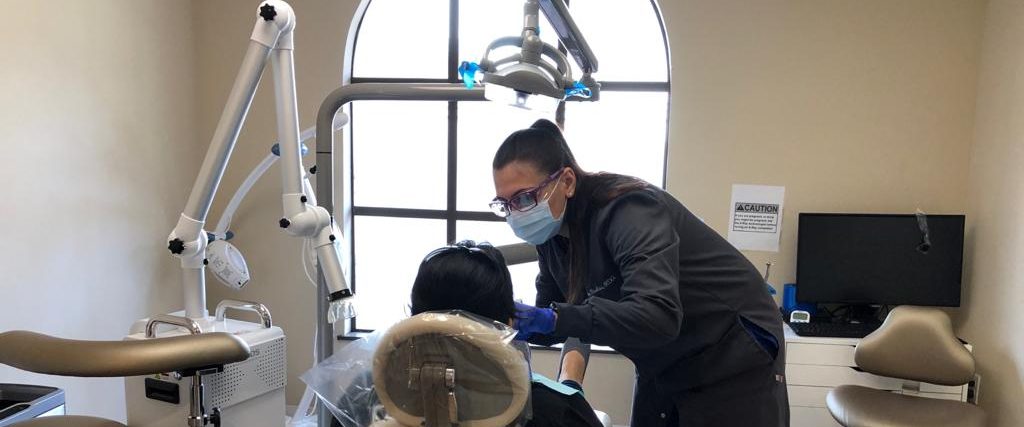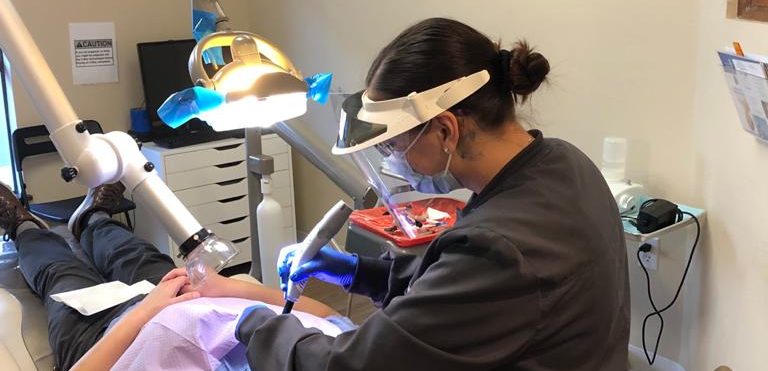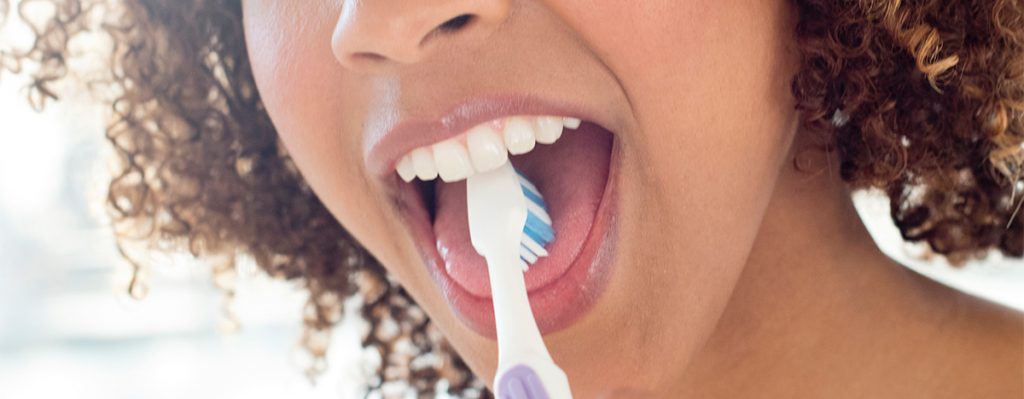Date : 14/09/2020
Is fluoride bad for you?
Wait. Did you just ask “Is fluoride bad for you”? What kind of question is that?
After all, we’ve all been putting fluoride on our teeth since we were kids. Fluoride supposedly makes our teeth stronger and more resistant to cavities….right?
Regardless, the debate on whether or not fluoride is actually healthy for us has become increasingly heated in recent years. When considering whether or not fluoride is bad for you, it’s important to point out that this has been quite a controversial topic for decades.
Dental professionals have recommended the use of fluoride to children and adults as part of basic daily dental care for a long time. Due to the purported benefits of fluoride, municipal water supplies routinely add it to their water. Authorities want to ensure that people are getting enough fluoride to support the health of their teeth.
However, in recent years, more and more people have been asking themselves this question: is fluoride bad for you?
Is Fluoride Bad for You?
To understand the fluoride controversy and answer whether or not fluoride is bad for you, we must first understand what fluoride is and the history of its use in our society. We will explore fluoride’s use, its effects on your health, and we will touch on the current debate surrounding its use.
In addition, we will provide a list of fluoride alternatives for you to review.
Read below to learn about fluoride and why so many people are now questioning the wisdom of adding synthetic fluoride to municipal water supplies and dental products.
Fluoride FAQs
What is Fluoride?
Fluoride occurs naturally in soil, plants, rocks, water, and the air. It is also present in your teeth and bones. The fluoride present in dental products and drinking water is a synthetic fluoride.
How Does Fluoride Work?
Fluoride purportedly benefits the teeth by:
- Altering enamel structure in children under 7 and strengthening it against acid
- Creating an oral environment that is resistant to acid
- Making plaque bacteria unable to produce acid
The Complicated History of Fluoride
In 1901, dentist Frederick McKay discovered that fluoride is beneficial for teeth.
Moreover, through his work with children in the Colorado Springs area, he noticed that many area children had brown stains on their teeth. At the same time, these children appeared to have quite strong teeth.
Eventually, officials in Colorado Springs uncovered a large amount of naturally occurring fluoride in its water supply. Therefore, they concluded that this caused the mottled brown stains on the teeth, now known as dental fluorosis.
Further investigation of this phenomenon led to the understanding that fluoride aids in the process of remineralization. Remineralization is a process that occurs naturally. In this process, saliva repairs enamel by neutralizing acid before the formation of cavities can occur.
In the 1940s, the Center for Disease Control conducted research studies to further explore the relationship between fluoride and its effects on the teeth. The results of these studies indicated that fluoride reduces cavities by 50 to 70 percent.
Then, in 1962, the CDC officially recommended adding fluoride to public water supplies. The recommended level of fluoridation range at that time was 0.7 to 1.2 milligrams per liter.
Proctor & Gamble was the first company to offer fluoride in their toothpaste. After conducting a multi-million dollar research study on cavity prevention in children, they determined that 50 percent of the participants had decreased cavities from fluoride.
Based on these results, they released Crest toothpaste in 1955, the first toothpaste to contain fluoride. The ad campaign slogan was “Look, Mom! No cavities.”
From that point onward, it became common knowledge that fluoride is necessary to maintain strong teeth and reduce cavities.
Fluoride Use Today
Ask a dentist “is fluoride bad for you?” and you’ll likely get a funny look (or a dirty look).
Nearly all dentists and the American Dental Association support the daily use of fluoride in toothpaste, mouthwashes, and as part of routine dental visits. They insist that fluoride is both effective and safe.
Furthermore, school personnel also give periodic fluoride rinses. The official CDC statistics on the use of fluoridated water show that 75 percent of the population receives water fluoridation.
Image: Public Domain, by Staff Sgt. Diandra Harrell, via U.S. Army
The Fluoride Debate
Regardless of the dental health community’s support of fluoride, many individuals, independent scientists, and some dentists have been speaking out in recent years about their concerns regarding the possible risks of fluoride. Professionals are finally questioning the side effects of fluoride.
Their opinions range from the belief we should completely ban the use of fluoride to the view that our current level of use is particularly excessive, especially with regard to its inclusion in public water supplies.
Critics of fluoride believe that individuals should be allowed to choose what they put into their bodies and at an amount that makes them comfortable.
Check out the list below to see some of the arguments against fluoride.
- Fluoride is naturally occurring in water; it’s unnecessary to add more
- People have the right to choose whether they ingest fluoride
- Different people may need different amounts
- Current levels might be dangerous
- Harmful to the environment
- Fluoride is a neurotoxin at high doses
- Excessive exposure can lead to health problems
In 2015, the U.S. government lowered the recommended fluoridation range for the first time to 0.7 milligrams per liter of water. Concerns regarding dental fluorosis due to fluoride toxicity sparked this change. Some suggest that once the level of fluoride in the body has resulted in visible effects on the teeth, it should also be assumed that the body, as a whole, is in a state of fluoride toxicity.
Ways Fluoride Can Impact Your Health
Research has provided conflicting evidence regarding the benefits of fluoride use. While results have indicated an association between the use of fluoride and a decline in dental cavities, other studies have shown that the benefits are rather minimal.
Furthermore, one study found that the rates of dental cavities have also declined in countries that do not have fluoridated water, which seems to suggest that we don’t really know the exact reason why cavities are declining.
Therefore, we should be cautious when attempting to attribute this success to fluoride alone. We also must weigh this information against what we know about the risks associated with excessive fluoride intake.
To further answer the question, “is fluoride bad for you?”, we have compiled a list of the ways fluoride may impact your health below:
- Acne, skin problems
- Cardiovascular problems
- Reduced fertility
- Early onset puberty in girls
- Thyroid issues
- Osteoarthritis
- Bone cancer
- Neurological problems
- ADHD
- Temporomandibular joint dysfunction (TMJ)
- Dental fluorosis, discolored teeth
Seven Fluoride Alternatives
Is fluoride bad for you? If you are concerned about possible side effects from fluoride, you may wish to replace your fluoride-containing products with alternatives.
Rest assured, there are many products available for purchase that are free of fluoride and effective at maintaining the health of your teeth and gums.
You can also make your own toothpaste and rinses at home. If this is something that interests you, then check out our list of alternatives below.
1. Neem
Neem trees are native to India. Locals extract the oil from the leaves. This oil is purportedly both antimicrobial and antifungal. Look for a toothpaste containing Neem leaf extract for reducing plaque and guard against gingivitis.
2. Oregano Oil
Oregano oil also has antibacterial and antifungal properties making it suitable for treating a variety of fungal and bacterial infections. In dental care, people use it for canker sores, abscesses, toothaches, and more.
Oregano oil also makes a great alternative to traditional mouthwashes by creating a healthier environment for your teeth and gums. Make sure to dilute the oregano oil with a carrier oil and water before use.
3. Coconut Oil
Coconut oil is truly a multi-purpose staple to keep in your home. Both antimicrobial and antifungal, you can experience its benefits by cooking with it, applying it topically, cleaning your face with it, and using it as a toothpaste.
Studies have shown coconut oil is effective at reducing tooth decay by slowing the growth of associated bacteria. Using it as a mouthwash also reduces plaque.
4. Zinc Citrate
Zinc Citrate is found in some alternative mouthwashes and toothpaste. It is effective at reducing oral bacteria and stopping the growth of bacteria that causes gingivitis.
5. Green Tea Extract
Green tea isn’t just for drinking! Studies on green tea extract have found it to contain polyphenols which fight bad oral bacteria that contribute to plaque, bad breath, and viruses.
6. Myrrh
A sap-like substance people extract from trees of the genus Commiphora, Myrrh has been used throughout history for a variety of things. With regard to dental health, it contains a compound that fights bad breath, improves gum health, and has been shown to fight periodontal disease.
7. Baking Soda
Did you know you can create your own toothpaste from baking soda? Simply mix together a small amount of baking soda with water to cut down the abrasiveness of the baking soda. If you don’t like the taste of baking soda, you can add stevia and essential oils for flavor, like cinnamon, peppermint, or spearmint.
So…Is Fluoride Bad for You?
For over 50 years, fluoride has been used in oral products and in public water with the purpose of strengthening teeth and preventing tooth decay. Studies have shown that is effective to this end. It has only been recently that concerns have arisen regarding fluoride’s potential negative consequences.
While it is true that excess fluoride in the body can cause significant health issues, we don’t have enough evidence, at this time, to say with certainty that its current recommended level of use should be reduced further or discontinued.
Fluoride is a naturally occurring substance, and as with any substance (natural or otherwise), use in moderation to experience its benefits and minimize any potential risks.
For those interested in other natural alternatives to fluoride, we made sure to include a list of some great options with proven dental benefits. Always discuss your plans with your dental care provider to ensure they are the best choice for you.
However, regardless of the decisions you make for you and your family, remember that being informed matters most. With good information, you can make the choices that work for your family.




